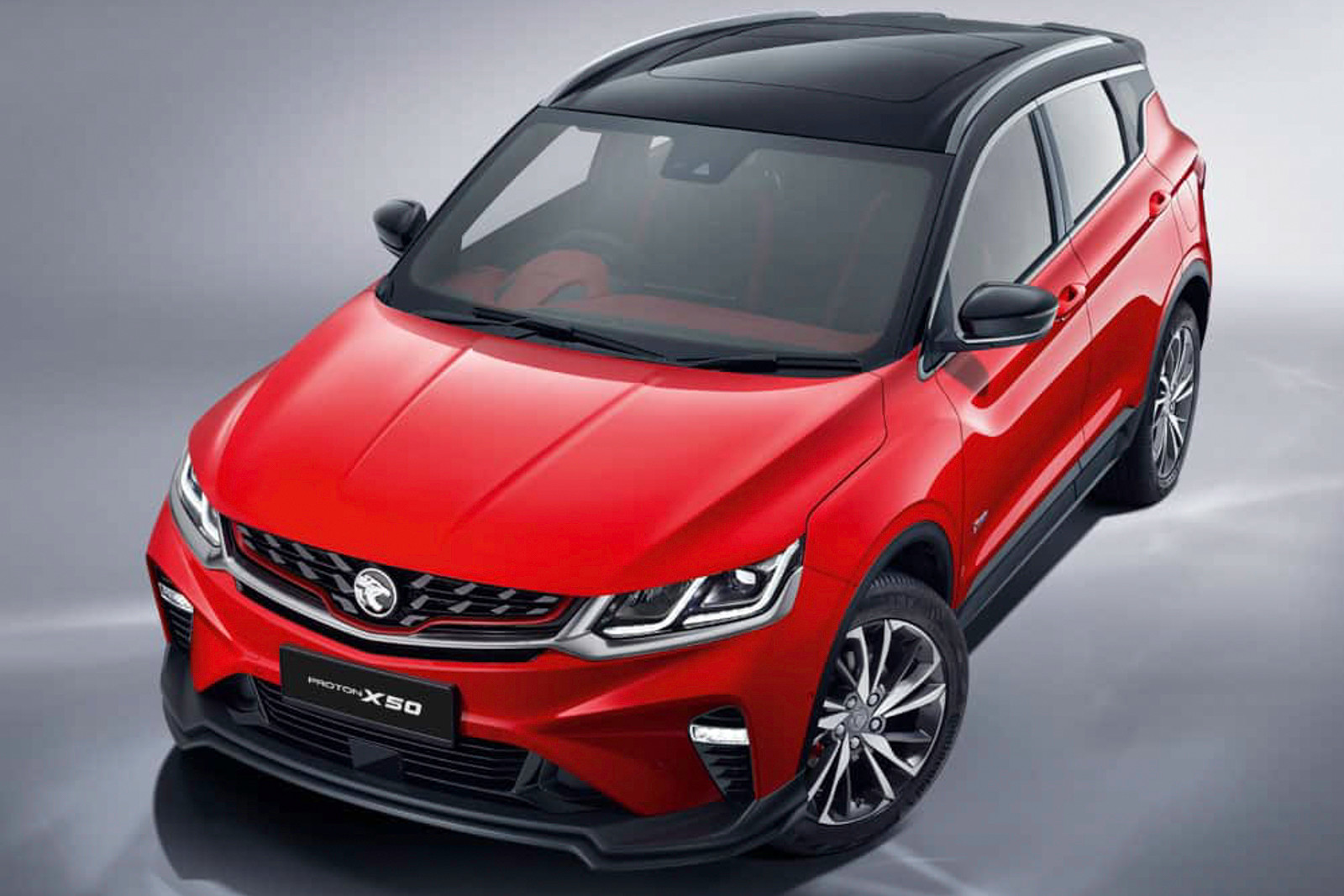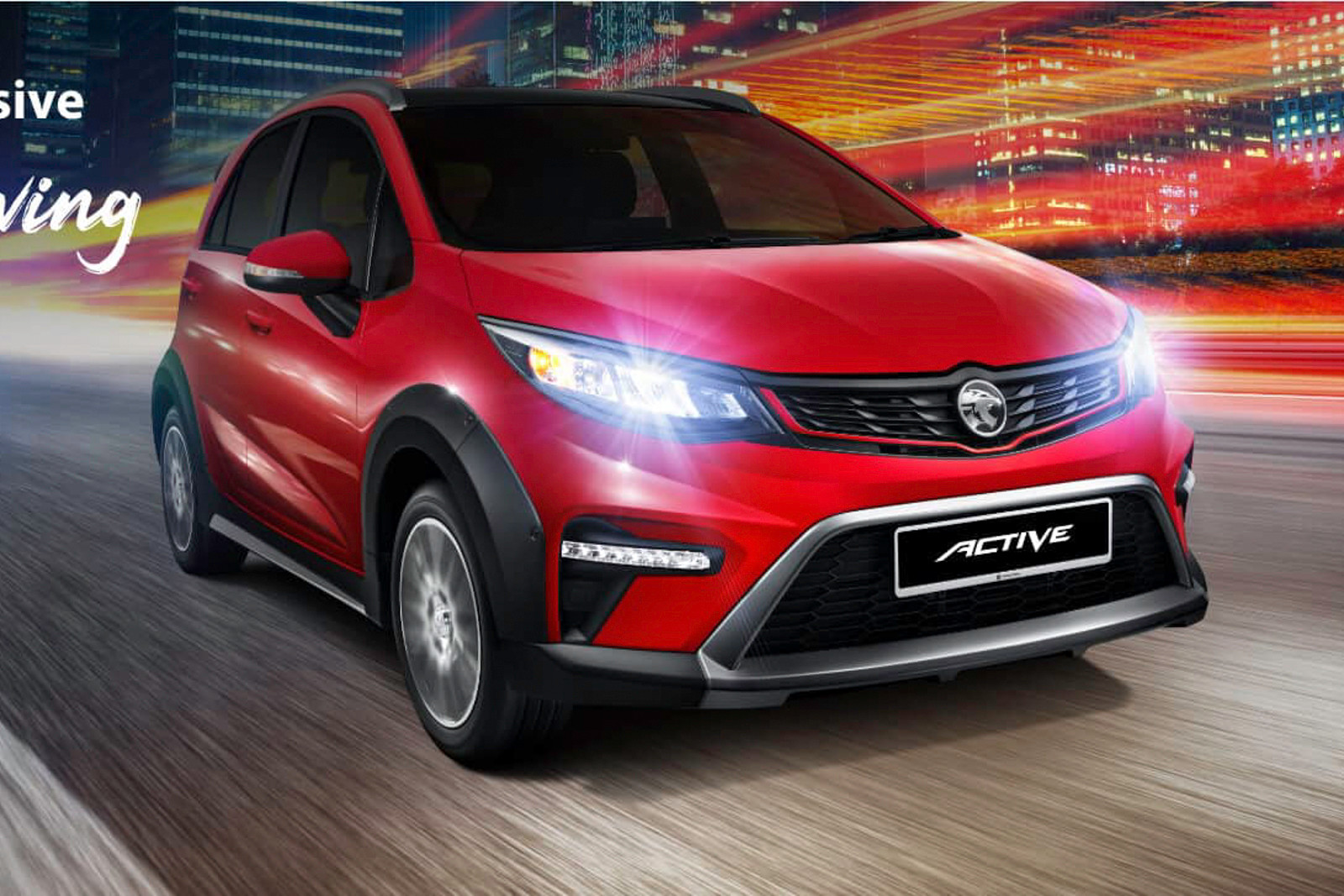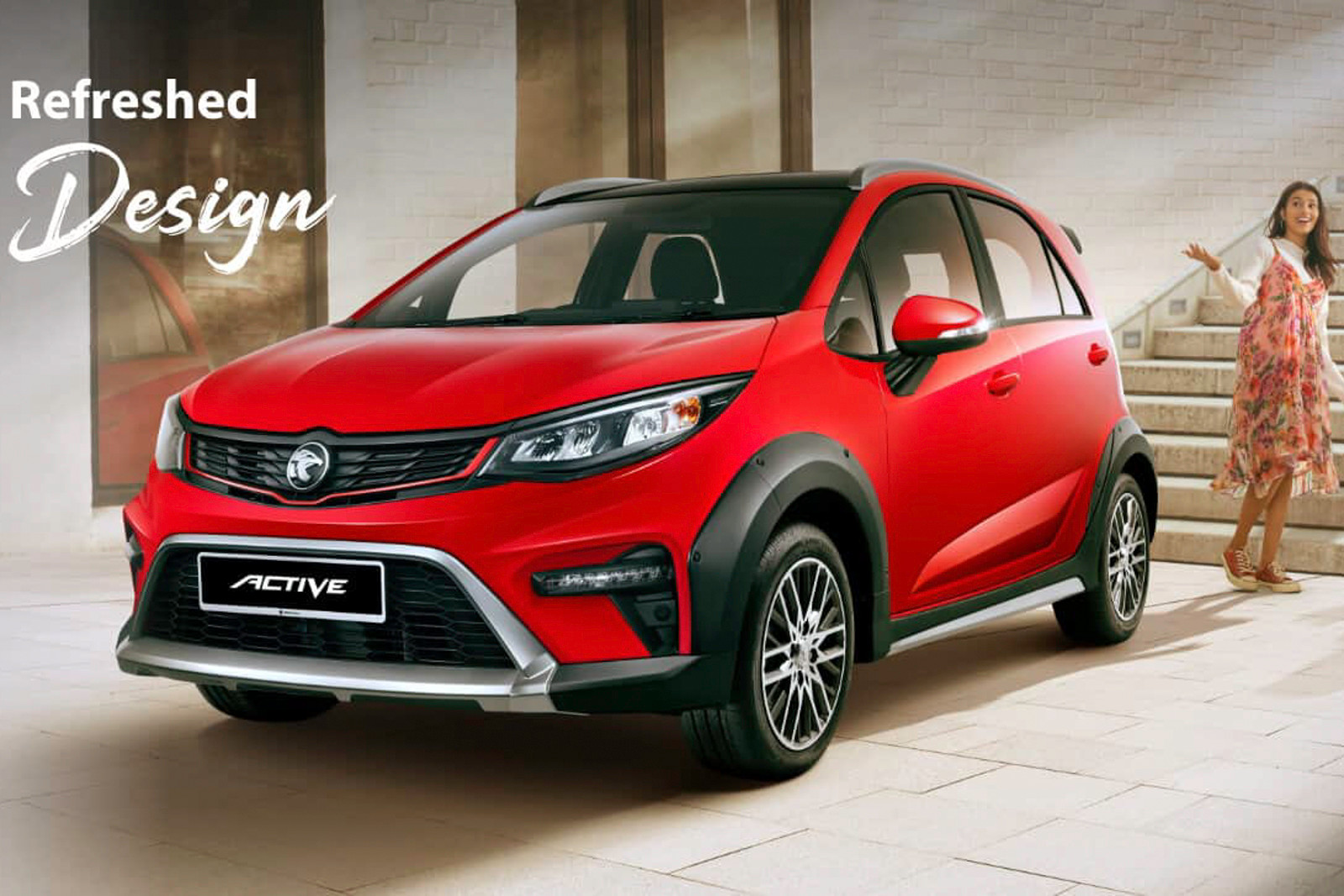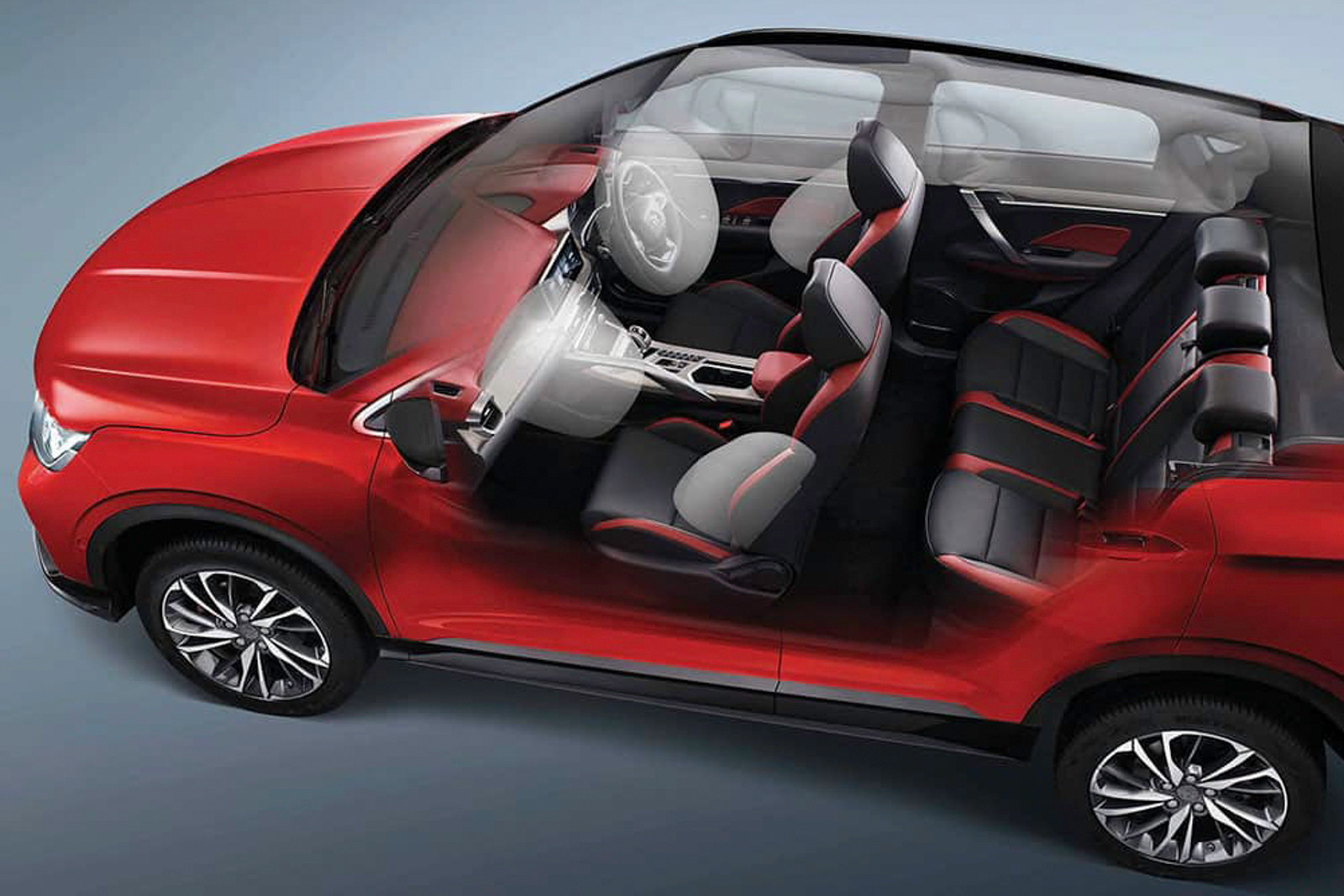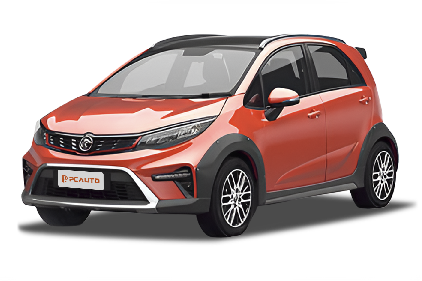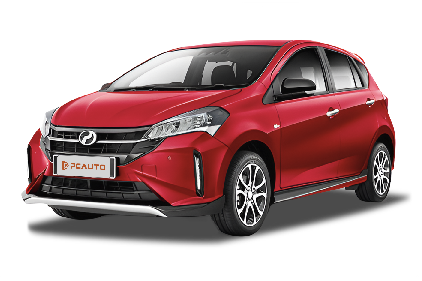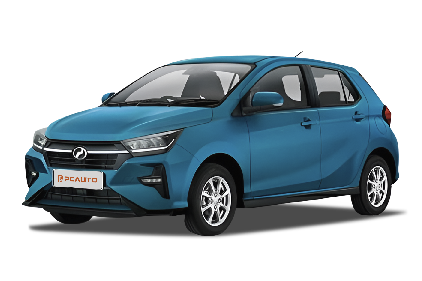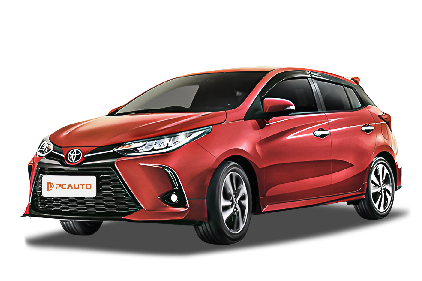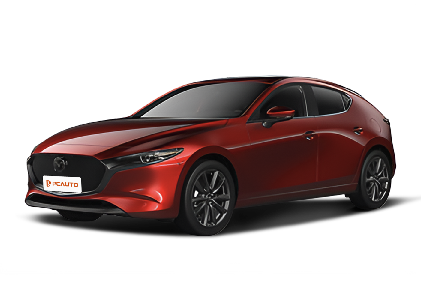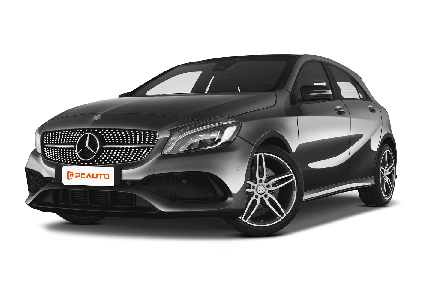Q
Is the Daihatsu Sirion a good car?
As an economical compact car, the Daihatsu Sirion is favored by some consumers in the Malaysian market for its fuel efficiency, agility, and practicality. It's especially suitable for urban commuting. Its 1.3L and 1.5L engines offer smooth power performance and good fuel economy. The maintenance cost is relatively low, and the supply of spare parts is quite sufficient. This makes it a great choice for young families on a budget or first-time car buyers.
Although the interior space is compact, it's well-designed. The rear seats can be folded to further enhance the flexibility of cargo loading. However, its sound insulation and high-speed stability may not be as good as some of its competitors in the same class. The interior is mainly made of hard plastics, which is in line with its price range. If you're looking for higher-end configurations or a better driving experience, you may need to consider other models.
Overall, the Sirion strikes a good balance in terms of reliability, operating cost, and practicality, making it a practical option for city driving. It's recommended that you take a test drive before purchasing and compare it with popular local models like the Perodua Myvi or Proton Iriz in the same class to make a choice based on your personal needs.
Q
What engine is in the Daihatsu Sirion?
In the Malaysian market, the Daihatsu Sirion is mainly equipped with two naturally - aspirated gasoline engines: 1.3-liter and 1.5-liter. The 1.3-liter engine, with the model number K3-VE, features a DOHC 16-valve design. It has a maximum output power of about 86 horsepower, which is suitable for city driving and offers excellent fuel economy. The 1.5-liter engine, coded 3SZ-VE, also uses DOHC 16-valve technology, with a maximum power of up to 109 horsepower. It provides more abundant power and is suitable for users who need stronger acceleration performance. Both of these engines are well-known for their reliability and low maintenance costs, which aligns with Daihatsu's consistent positioning of being economical and practical.
As a small hatchback, the Sirion is favored by urban users in the Malaysian market for its flexible body size and high-efficiency fuel consumption, especially suitable for congested urban road conditions. For Malaysian consumers, choosing the Sirion not only allows them to enjoy the high-quality of Japanese cars but also benefits from its relatively low repair and maintenance costs. Meanwhile, the 1.5-liter version also offers a smoother high-speed driving experience, meeting the needs of occasional long - distance trips.
Q
What is the lifespan of a Daihatsu Sirion?
As an economical and practical small car, the Daihatsu Sirion is favored by many car owners in the Malaysian market for its durability and low maintenance costs. Its service life typically ranges from 10 to 15 years, depending on the maintenance condition, driving habits, and usage environment. If you regularly replace consumables such as engine oil and filters and strictly follow the manufacturer's recommended maintenance cycle (e.g., once every 5,000 to 10,000 kilometers), the vehicle's engine and transmission system can remain in good condition. The tropical climate in Malaysia may accelerate the aging of rubber parts (such as belts and bushings), so it is recommended to inspect or replace them every 5 years. In addition, the 1.3L and 1.5L engines of the Sirion have mature technologies and sufficient parts supply, resulting in relatively low long-term usage costs. It's worth noting that in the used-car market, Sirion models with complete maintenance records have a relatively high residual value. The models after 2010 offer better comfort due to the improved suspension tuning. For Malaysian consumers with limited budgets who are looking for a reliable means of transportation, this car is worth considering. However, it is advisable to conduct a computer diagnosis before purchasing to ensure there are no hidden faults, and it's better to choose vehicles that have been maintained at the authorized dealership to reduce the risk of subsequent repairs.
Q
What is the fuel consumption of the Daihatsu Sirion?
As an economical and practical small car, the Daihatsu Sirion boasts quite good fuel economy. The specific fuel consumption varies according to different production years and engine configurations. Generally speaking, the urban fuel consumption of the 1.3-litre and 1.5-litre engine versions is around 6 to 7 litres per 100 kilometers, and it can drop to 5 to 6 litres per 100 kilometers when driving on the highway. The actual figures are also affected by driving habits, road conditions, and the vehicle's maintenance status.
For Malaysian consumers, this car is highly suitable for urban commuting. It not only has low fuel costs but also relatively affordable maintenance expenses, making it a great value-for-money option. Moreover, the compact body design of the Daihatsu Sirion makes it extremely maneuverable on Malaysia's narrow streets and in crowded parking lots. At the same time, its reliable quality and low fuel consumption meet the local consumers' requirements for economical vehicles.
If you're considering buying a fuel-efficient and practical small car, the Daihatsu Sirion deserves to be on your shortlist. It's recommended that you take a test drive before purchasing to better understand its actual driving experience and fuel consumption performance.
Q
Which country made Daihatsu Sirion?
The Daihatsu Sirion is a compact car produced by Daihatsu Motor Company, a Japanese automaker. This brand belongs to the Toyota Group and is well-known for manufacturing economical and practical small cars. The Sirion was first introduced in the 1990s, mainly targeting the Asian and European markets. Its design focuses on fuel economy and flexibility for city driving, making it highly suitable for the traffic environment in Malaysia.
In Malaysia, the Sirion was once sold through local assembly (CKD). Some models were equipped with 1.3-liter or 1.5-liter engines that met local requirements, achieving a good balance between power and fuel consumption. It's worth mentioning that as a subsidiary brand of Toyota, Daihatsu has advantages in technology sharing and parts supply. This results in relatively low maintenance costs for the Sirion, and its parts are easier to obtain in the Malaysian market.
Although the Sirion has gradually been replaced by new-generation models, its durability and practicality are still recognized by many Malaysian car owners, and it can still be seen in the second-hand market. For consumers with a limited budget who need a reliable means of transportation, the Sirion used to be a great choice.
Q
Is the Daihatsu Sirion a reliable car?
As a compact car focusing on economy and practicality, the Daihatsu Sirion is quite popular among many consumers in the Malaysian market for its fuel-efficiency, agility, and low maintenance costs. Its reliability generally meets the consistent standards of Japanese cars of this brand.
The Sirion is equipped with a 1.3L or 1.5L naturally-aspirated engine with mature technology. Coupled with a lightweight body design, it shows excellent fuel economy during urban commuting. Meanwhile, the simple mechanical structure also reduces the failure rate during long-term use, and the daily maintenance cost is relatively affordable, making it suitable for family users with limited budgets.
However, it should be noted that if some early models lack regular maintenance, there may be problems such as aging of the suspension system or occasional issues with small electronic components. It is recommended to give priority to vehicles with a complete maintenance record when buying a second-hand Sirion.
For Malaysian consumers, the supply of Sirion parts is relatively abundant, and the maintenance convenience is better than that of some niche models. But we also need to view rationally the common shortcomings of compact cars, such as the sound insulation effect and high-speed stability.
If you are looking for higher-end configurations or more refined interiors, the Perodua Myvi or Honda Jazz in the same class may be worth comparing. However, the Sirion is still a practical choice for basic transportation needs, especially suitable for users who value practicality and vehicle maintenance costs.
Q
Is the Daihatsu Sirion petrol or diesel?
In the Malaysian market, the Daihatsu Sirion is mainly available in gasoline engine versions, and no diesel models have been launched. This small car is popular among local consumers for its cost-effectiveness and low fuel consumption, making it particularly suitable for city commuting. The 1.3L or 1.5L gasoline engines equipped in this car adopt the DVVT (Dual Variable Valve Timing) technology. This technology optimizes fuel efficiency while ensuring power output, meeting the needs of Malaysian users for daily commuting vehicles
It's worth noting that the Malaysian automotive market is dominated by gasoline-powered cars. This is mainly influenced by the government's fuel subsidy policy and the relatively high maintenance costs of diesel cars. Therefore, most Japanese small cars are launched with gasoline versions first. For buyers with a limited budget who value durability, the Sirion's gasoline engine combined with a lightweight body design can achieve an actual fuel consumption of over about 15 km/L. Its engine technology has also been proven in the market for a long time, and the local parts supply and repair network are quite well-established.
If we consider diesel cars, the Malaysian market focuses more on pickups or large SUVs. These types of vehicles require higher torque to handle the load, while city cars like the Sirion usually don't need the extra low-end torque advantage of diesel engines.
Q
How many cylinders does a Daihatsu Sirion have?
As an economical and practical small car, the Daihatsu Sirion is popular in the Malaysian market for its fuel efficiency and nimble handling. Its engine configurations vary depending on the model and year. The common versions are equipped with 1.3-liter or 1.5-liter naturally aspirated engines, both featuring a 4-cylinder design. This kind of configuration is quite common in small cars, capable of balancing power output and fuel economy, which is ideal for city driving.
The 4-cylinder engine has a simple structure, low maintenance costs, and good running smoothness, making it the top choice for most family cars. For Malaysian consumers, such a configuration can not only meet the daily commuting needs but also reduce long-term usage costs. Moreover, the lightweight body of the Daihatsu Sirion, paired with the 4-cylinder engine, further improves fuel efficiency, making it highly suitable for the stop-and-go traffic conditions in Malaysia.
If you're interested in engine technology, you can keep an eye on the new models launched by Daihatsu in recent years. Some of them adopt the more advanced DVVT (Dual Variable Valve Timing) technology, which optimizes the low-speed torque and high-speed power performance. However, the classic 4-cylinder design of the Sirion remains a practical option.
Q
What is the engine capacity of the Daihatsu Sirion?
The Daihatsu Sirion is a sister model of the Perodua Myvi. Its engine capacity varies according to different years and versions. Early models, such as the 2005 version, were equipped with a 1.3-liter K3-VE engine (1298cc), while later versions, like the 2010 model, were upgraded to a 1.5-liter 3SZ-VE engine (1495cc). Both of these engines are well - known for their fuel efficiency and durability, making them suitable for the urban road conditions in Malaysia.
It's worth noting that the Sirion shares powertrain technology with the Myvi. As a result, the maintenance costs are relatively low and there is an abundant supply of parts, which is very practical for Malaysian car owners. Engine capacity is one of the important indicators for measuring a car's power output. Generally speaking, the larger the displacement, the stronger the power, but the fuel consumption will also increase accordingly. The 1.3-liter and 1.5-liter engines of the Sirion have achieved a good balance between power and fuel economy, which is also one of the reasons for its popularity in the Southeast Asian market.
For Malaysian consumers who want to buy a second-hand Sirion, it is recommended to choose the appropriate displacement according to their daily driving needs. If you often drive long distances, you can consider the 1.5-liter version, while the 1.3-liter version is more economical if you mainly use the car for urban commuting.
Q
What is the fuel economy of the Daihatsu Sirion?
As a practical and economical small car, the Daihatsu Sirion performs well in fuel economy. The specific fuel-consumption data will vary depending on different years and engine configurations. Generally, for models equipped with a 1.3L or 1.5L engine, the fuel consumption is about 6-7 liters per 100 kilometers under city driving conditions, and it can drop to around 5-6 liters per 100 kilometers when driving on the highway. Overall, it's suitable for daily commuting and family use.
For Malaysian consumers, considering the local road conditions and fuel prices, the fuel-saving feature of the Sirion can help reduce the cost of car use. It's especially suitable for users with limited budgets who still need a reliable means of transportation. Moreover, it's quite convenient to drive and park a small car in Malaysian cities. Additionally, the Daihatsu brand has a well-established after-sales service network locally, so the maintenance is also relatively cost-effective.
If you have higher requirements for fuel economy, you can also pay attention to the regular maintenance of the vehicle. For example, keep the tire pressure normal and replace the air filter regularly. These small details can further optimize the fuel-consumption performance.
